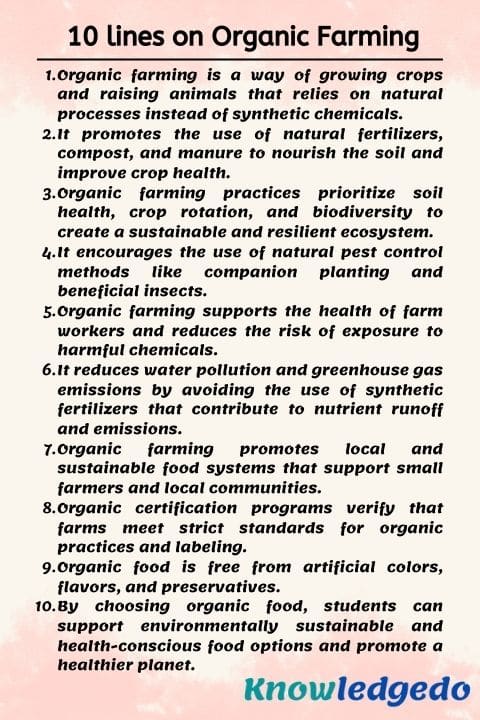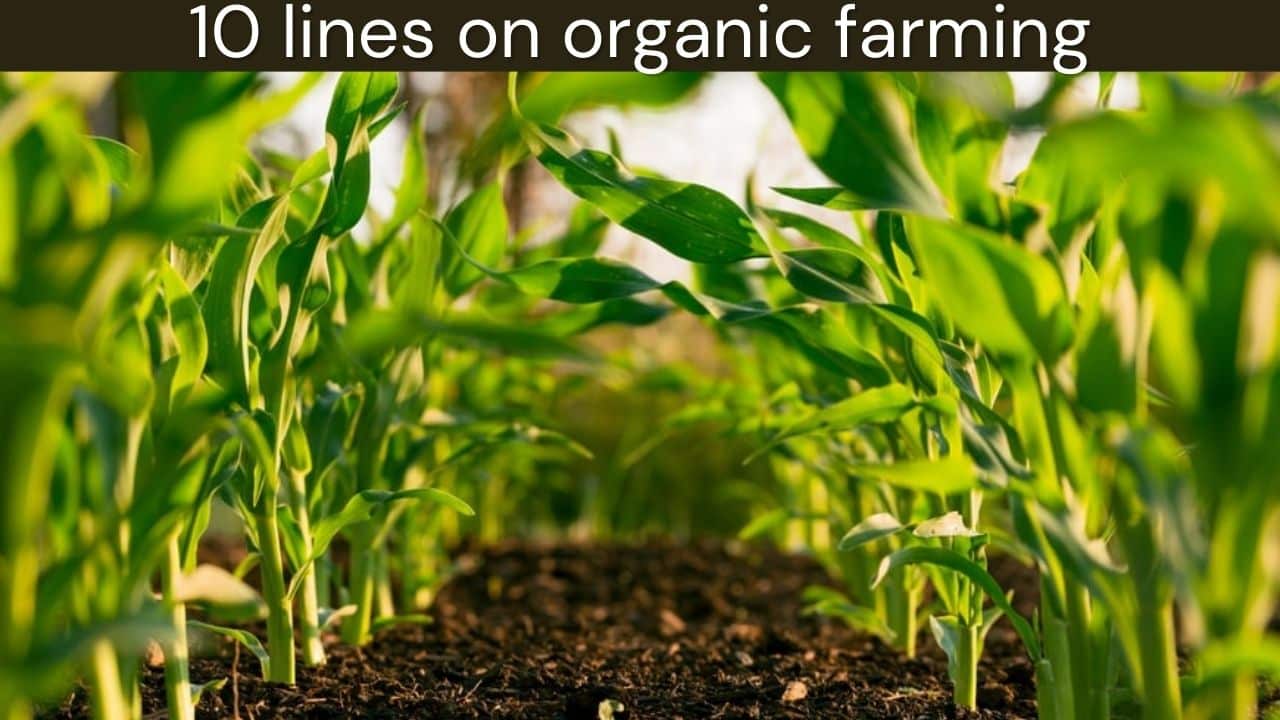Today, we are sharing 10 lines on Organic Farming in English. This article can help students who are looking for information about 10 lines on Organic Farming. This Lines is very simple and easy to remember. The level of these Lines is moderate so any student can write on this topic.
This article is generally useful for class 1,class 2,class 3,class 4,class 5,class 6,class 7,class 8,class 9,class 10,class 11,class 12
10 lines on organic farming
1) Organic farming is a way of growing crops and raising animals that relies on natural processes instead of synthetic chemicals.
2) It promotes the use of natural fertilizers, compost, and manure to nourish the soil and improve crop health.
3) Organic farming practices prioritize soil health, crop rotation, and biodiversity to create a sustainable and resilient ecosystem.
4) It encourages the use of natural pest control methods like companion planting and beneficial insects.
5) Organic farming supports the health of farm workers and reduces the risk of exposure to harmful chemicals.
6) It reduces water pollution and greenhouse gas emissions by avoiding the use of synthetic fertilizers that contribute to nutrient runoff and emissions.
7) Organic farming promotes local and sustainable food systems that support small farmers and local communities.
8) Organic certification programs verify that farms meet strict standards for organic practices and labelling.
9) Organic food is free from artificial colours, flavours, and preservatives.
10) By choosing organic food, students can support environmentally sustainable and health-conscious food options and promote a healthier planet.

5 lines on organic farming
1) Organic farming is a method of growing crops and raising animals using natural processes instead of synthetic chemicals.
2) It promotes soil health, crop rotation, and biodiversity to create a sustainable ecosystem.
3) Organic farming avoids the use of synthetic fertilizers, pesticides, and genetically modified organisms (GMOs).
4) It reduces the risk of exposing farm workers to harmful chemicals and promotes the health of the environment.
5) Choosing organic food supports environmentally sustainable and health-conscious food options.
FAQ
Answer: Organic farming is a method of agriculture that relies on natural processes and biodiversity to produce crops and livestock. It avoids the use of synthetic fertilizers, pesticides, and GMOs in favour of natural inputs and methods.
Answer: Organic farming promotes soil health and biodiversity, reduces water pollution and greenhouse gas emissions, supports local and sustainable food systems, and reduces the risk of exposing farm workers to harmful chemicals.
Answer: Conventional farming uses synthetic chemicals and GMOs to maximize crop yields and control pests, while organic farming relies on natural inputs and methods to promote soil health and biodiversity.
Answer: Organic food is certified by regulatory bodies like the USDA or EU, which verify that farms meet strict standards for organic practices and labelling. Look for the organic seal on food packaging or ask your local farmer or grocer about their organic certification.
Answer: Organic food is often more expensive than conventional food due to the increased labour and materials costs associated with organic farming. However, some argue that the long-term benefits of organic farming justify the higher price tag.
